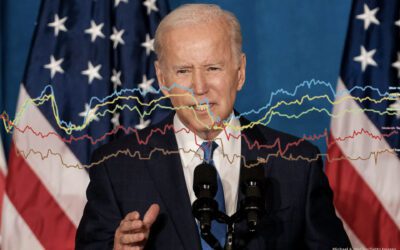Two new surveys from Democracy Corps find strong support for President Barack Obama, his agenda and his economic plan. In the wake of his inauguration, Obama boasts his strongest personal ratings yet, enjoying a better-than 3:1 favorable-unfavorable ratio nationally. Obama’s standing is nearly as strong in the conservative-leaning, but Democratic-held, Congressional districts that are likely to make up the 2010 battleground, and his personal popularity carries over to his economic recovery plan.
Candidates of either party nationally, and particularly in states with competitive US Senate races, win more support when voters hear they voted for the plan. In this week’s national survey, completed as this plan was being debate, 62 percent support Obama’s economic recovery plan – more than twice as many who oppose (27 percent). The same is true in the battleground of Democratic seats picked up in the last two elections (64 to 27 percent). And in a named ballot test, these voters say they are a net 12 points more likely to support their incumbent Representative’s reelection if he or she supports Obama’s plan (again, national numbers are similar).
Clearly, support for the president’s economic package is substantial, even in the challenging districts held by the most-vulnerable Democratic incumbents. In the wake of his inauguration, Obama boasts his strongest personal ratings yet, now enjoying a better than 3:1 favorable-unfavorable ratio nationally.
More important, since the election Obama has seen his ratings on a number of key attributes skyrocket. Over 70 percent of voters now describe the president as honest and trustworthy, and three-quarters say he is a strong leader. While Obama’s outreach to Republicans may not have generated any Republican votes on his economic plan in the House, it is clearly cementing his reputation as a bipartisan problem solver; an astounding 80 percent of voters, including 56 percent of Republicans, say Obama is willing to work with both parties. Obama’s standing is nearly as strong in the conservative-leaning, but Democratic-held Congressional districts that are likely to make up the 2010 battleground.
In the 40-most vulnerable Democratic-held seats, a battleground George Bush carried by 13 points in 2004, Obama’s personal standing is nearly as strong as it is nationally, with 59 percent rating him favorably against just 20 percent unfavorably. And 70 percent of battleground voters say they support Obama’s policies and goals for the country, virtually the same level of support he receives nationally. With about a third of Republicans backing Obama’s policies and goals, it is not surprising that Obama is doing as well in these Republican-leaning areas – his poll results here parallel his high national numbers.
This report is based on a national survey of 1,000 likely voters conducted January 26-29, and a survey of 1,200 likely voters in the 40 most-vulnerable Democratic-held congressional seats conducted January 14-19.




